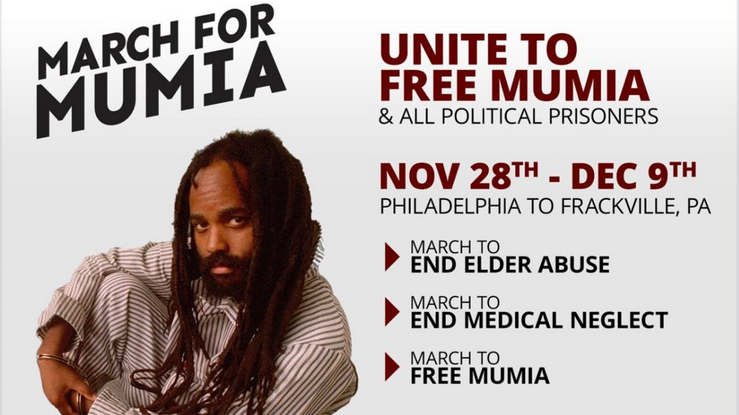World Bank’s president Kim; see no evil, hear no evil?
Institutional racism permeates every facet of life in America. It is perpetuated by the uppermost echelons of America’s elite in high office as it also is by law enforcement officers in the backstreets of America.
The ubiquity of Smartphone videos and the advent of social media have helped bring blue-collar racism to the forefront of American racial discourse, providing a groundswell for a national movement: “Black Lives Matter!”
By contrast, the white-collar racism often practiced by the elite classes remains sheltered in the shadows and blind spots of America’s political space and moral consciousness. This is nowhere clearer than in the World Bank where Blacks are treated as members of an inferior caste.
Historically, the World Bank has been run by Harvard-trained luminaries. Of the last eight presidents six are products of Harvard, including the current President, Dr. Jim Yong Kim.
Dr. Kim was recommended to his current position by former Secretary of State Hillary Clinton, and subsequently nominated to it by President Barack Obama. His predecessor Robert Zoellick, a Harvard luminary and a Republican mainstay, was anointed by President Bush. Such are the powerful and politically connected elites who are accountable for running a neo-apartheid system; a statement proven by the bank’s own personnel data and reports.
Articles linking the World Bank to apartheid are a mere Google-search away. Several World Bank reports acknowledge the problem highlighting: “a cultural prejudice among some managers, who rated people of African origin as inferior” (1992); “Blacks are told that they can only work in the Africa region because [some nationals] do not want to work with them” (2003); and “Some staff referred to their assignment as kind of apartheid” (2014).
In 1997, a director of the Bank’s Loan Department was asked in a departmental meeting why he was not hiring Black professionals. His answer was forthright: “Blacks make poor accountants and the department could not hire too many blacks as the department would look like a ghetto.”
In 2004, an African American was selected as a candidate of choice by an interviewing panel for a regular position. A senior HR officer intervened to stop her recruitment, sending an email to the hiring director: “The African American is about 57 years old and has been in the Bank about 20 years. For 18 years, she has been a temp…. I believe in the department, we need young, dynamic staff who are quick starts and have the urge to go an extra mile.” The position was given to a young Indian male.
In 2010, having gone through a very extensive competitive process, a Sudanese candidate was selected by three independent committees to fill the Chief Economist position for the Middle East and North Africa region. President Zoellick declined to confirm him for the position, noting that the Bank “can do even better.” He instructed his senior management to reopen the competition process. Ultimately, the position was given to a non-black candidate.
According to the Bank’s former Senior Advisor for Racial Equality, over 450 such cases of discrimination were filed with his office “in a span of five years.” A 2003 World Bank survey found a much higher number of complainants. Despite hundreds of complains not a single black complainant of racial discrimination has prevailed.
The manifest racism is sustained by the Bank’s immunity from U.S. laws and courts. The institution is answerable only to an internal Tribunal, which serves it both as an instrument of injustice and as a fig leaf of judicial oversight – a fox guarding the chicken coop.
In 2013, leaders of the Bank’s African Society, the African American and Caribbean Associations met with President Kim “with a unified message” about the racially “hostile environment in which [their] people work.” They urged the President to set up a high-level external commission to investigate the Tribunal, and in the meantime use external arbitration as an alternative option to resolve racial discrimination claims. As documented by one of the participants, their requests “did not sit well with” President Kim.
The Bank’s own 2014 study found that there is a “lack of accountability to discriminated groups” in institutions such as the World Bank. Nonetheless, President Kim continues to deny victims of discrimination the security of justice. One such incident involved an Ethiopian whose case has set off widespread outrage and led to an unprecedented intervention by the U.S. government, American civil rights organizations and the faith-based community.
In a repugnant act of racism, the World Bank charged the Ethiopian to manage a global program and held him accountable for its success, but, in the meantime, fronted a white consultant to the outside world as the program’s global manager. The excuse was that “Europeans are not used to seeing a black man in a position of power.”
The Bank was not shy to admit on the record that consultants are not allowed to “manage staff or budget, work full time, be a team leader, or sign documents of a legal or financial nature.” Nonetheless, for nearly two years, the white consultant was delegated as the global manager of the international program without his managing anything. Evidently, the Bank was keen to spare Europeans the indignity of seeing a black man as a global manager.
The Bank’s Peer Review Committee wrote to senior management stressing that the Bank’s decision “cannot be explained by business reasons.” The former Senior Advisor for Racial Equality said it was the worst case of racial discrimination that he has ever seen. The Chief Ethics Officer visited the Chief Economist three times to find a “constructive solution.” All to no avail.
The African filed a complaint with the Tribunal. The Bank stood firm regarding his interest in becoming the global manager of a high-profile international program as too audacious and saw it fit to cut him down to size. This involved debasing his official personnel record, going as far as nullifying his managerial responsibilities, deleting his title from World Bank publications, presenting him as a technical staff on its website and claiming that he is not qualified for a management position.
His professional standing was altered as follows: “He has multiple roles in the Bank’s global management” to “He had no management responsibility”; “He is praised for his many skills” to “He lacked competence”; and “The program couldn’t be successful without his expertise and knowledge of key players” to “The whole project would be put at risk if he was made global manager.”
The explanation was that his many years of “outstanding and superior” personnel record was “overinflated and had the unintended consequence of feeding into his megalomaniacal view and the resultant sense of entitlement to the global manager position.”
As documented by the Government Accountability Project (GAP), the Tribunal not only allowed the retrospective nullification of his record and the defamatory remarks to stand, but also “rendered them material and part of the record by basing its judgment on them as if they constituted valid evidence.” The Tribunal also ruled that the Bank’s decision to front the white consultant as global manager was justified by business reasons and summarily dismissed all the charges against the Bank.
Adding insult to injury, the Bank terminated the Ethiopian. Though the Tribunal found his termination “unlawful and arbitrary” it still ruled that he should not be reinstated because “he has criticized his managers.” To date, he remains unemployed and unemployable because of the defamatory personnel record that is on the Bank’s website.
This is a case that the Bank’s own 2014 report said was a “blatant and virulent” example of racism. Despite this and concerted pleas from the U.S. government and civil rights leaders, President Kim refused to take administrative actions to restore his record and withdraw the defamatory statements from the Bank’s website.
On one hand the President argues that the alleged defamatory remarks are on the Tribunal’s website and there is nothing he can do. On the other hand he instructs his lawyers to file a motion to dismiss the Ethiopian’s appeal before the Tribunal on the grounds that “allegations of due process violations by the Tribunal are not cognizable under the statue” of the Bank’s justice system.
The President understands full well that if a single victim of discrimination is redressed, either through administrative action or judicial order, the floodgates of complaints will be wide open. Keeping the floodgates shut tight requires denying Blacks legal and administrative redress.
Obviously, white-collar racial discrimination, no matter how systemic and repugnant, doesn’t trigger mainstream outrage in the way that a video footage of a fatal chokehold or the shooting in the back of a fleeing person does.
Obviously, also, America cannot address the endemic racism woven into its social fabric focusing exclusively on blue-collar racism while turning a blind eye to white-collar racism.
Black lives and rights should matter not only in backstreets and public parks, but also in high places. President Obama cannot remain silent as his appointee and occasional golf partner runs a neo-apartheid system down the street from the White House.
It’s past time for the U.S. to withhold funding to the World Bank until President Kim is held accountable, the Bank established an external commission to investigate the Tribunal for systemic human rights violations, and victims of racial discrimination are granted access to justice.
Frank Watkins is the Public Policy Director for Rainbow/PUSH Coalition.






